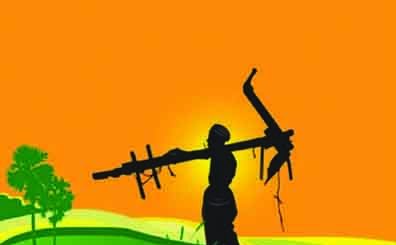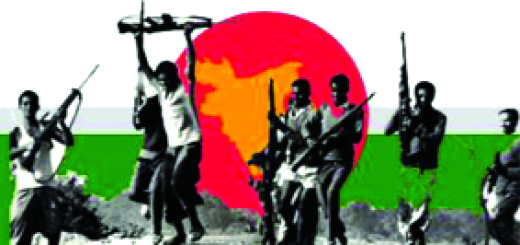Khalistan movement, Nijjar killing and Canada-India row -AbuTahir Mustakim
India’s intelligence agency ‘RAW’ is a formidable enemy in neighboring countries. The complaint of these countries is that ‘RAW’ interferes politically. They also allege the association of the organization with illegal groups involved in various violent activities. Canadian Prime Minister Justin Trudeau alleged last month that Indian government spies were involved in the killing of Sikh leader Hardeep Singh Nijjar in Vancouver last June. After this allegation, ‘RAW’ has again come into international discussion.
At least six people were involved in the killing of Sikh leader Hardeep Singh Nijjar in British Columbia, Canada. Two cars were used in the murder. The attackers fired 50 rounds at Hardeep. Thirty-four of them hit his body. CCTV footage, eyewitnesses, and investigators have revealed this information.
Prime Minister Justin Trudeau made an explosive comment in Canada’s Parliament after Hardeep’s murder. He said that he had received ‘credible allegations’ that India had a hand in this murder. Trudeau made the allegations based on information provided by the intelligence-sharing network Five Eyes. Canada is also among the five member countries of Five Eyes. Following Canada’s serious allegations against India, the UK and Australia said they are looking into the investigation into the Canadian citizen’s murder.
Hardeep Singh Nijjar was the president of the temple outside which a 45-year-old was killed. Hardeep was active in the Khalistan Movement, which demanded the creation of an independent state for the Sikhs in India. India has rejected Canada’s allegations of his murder. The country termed it as politically motivated. But Hardeep is already a ‘terrorist’ on India’s list.
After that complaint, the country’s foreign minister, Melania Jolie, announced the expulsion of an Indian diplomat stationed in Canada. Melania Jolie said that the person who was expelled was the head of the Indian intelligence agency ‘Research and Analysis Wing’- RAW. Not only had the protest, but the Ministry of External Affairs summoned the Canadian High Commissioner in India, Cameron Mack. The High Commissioner was also informed of the decision to expel a top diplomat of that country.
According to the statement of the Ministry of External Affairs, India is a democratic country. The main aim of such unsubstantiated allegations is to divert attention from Khalistani extremists and terrorists. Canada has given shelter to these militants. They threaten the sovereignty and integrity of India. But the Canadian government is inactive. The matter is of considerable concern.
This was followed by the reactions of various Western countries, which made India a bit uncomfortable. According to the US side, India should look into the allegations made by Canada and the allegations are serious. They want a full investigation into this. Apart from this, on behalf of the US government, it is also said that they have discussed the matter with the Indian government and have also expressed interest in directly joining this investigation.
The demand for a separate Khalistan for the Sikhs of the Punjab province of India began to rise in the 1940s, but it turned into a movement in the 1970s and 1980s. The movement was conducted from the premises of the Golden Temple in Amritsar, the main pilgrimage site of the Sikhs. From the beginning of the eighties, the movement turned violent, with weapons being stockpiled in buildings adjacent to temples.
On June 1, 1984, on the orders of Prime Minister Indira Gandhi, the army entered the premises of the Golden Temple, and Operation Blue Star began. A number of pro-Khalistan separatists, including top Khalistani leader Jarnail Singh Bhindranwale, were killed in the battle with the army. According to the government, 492 people, including 83 army personnel, Sikh separatists, and civilians, were killed in the operation. But Western media reported that the actual death toll was much higher.
The 10-day army operation sparked outrage across the world from the Sikh community, which they felt was a direct attack on their religion. A section of Sikh soldiers stationed in various Indian army camps revolted. Many of them were arrested by members of other army regiments who were later court-martialled. Prime Minister Indira Gandhi was shot dead by two of her Sikh bodyguards on October 31, 1984, due to Operation Blue Star. Anti-Sikh riots then broke out across India, in which more than a thousand Sikhs were killed.
About two million people of Indian origin live in Canada. Among them Sikhs number about 8 lakhs. According to Indian intelligence, the presence of pro-Khalistanists in the Sikh community living in Canada is a whopping 1 percent, Like 8 thousand. Although insignificant in terms of percentage, the number is not small. These ‘’separatist extremists’’ are the controllers of as many as 15 gurdwaras in that country. They are always active. They think that they are the representatives of the Sikh community.
It was clearly understood that India-Canada relations were not normal at all during the last G-20 Summit. Trudeau arrived in Delhi. Prior to his arrival, he expressed interest in a structured bilateral meeting with Prime Minister Narendra Modi. But India did not agree to that meeting. Modi and Trudeau spoke for a short while after the summit break. There, too, Modi hit out at Trudeau for showing a soft attitude towards the Khalistanis.
In response to questions from the media after that meeting, Trudeau said that everyone in Canada has the right to freedom of thought and expression and peaceful protest. A right that Canada holds dear can never be undermined. Trudeau did not forget to point out that the misdeeds of a few cannot be blamed on an entire community.
The deterioration of Canada-India relations has also weighed on trade talks. Free trade talks between the two countries have stalled. Recently, Canada also temporarily cancelled the decision to send a trade mission. The trade mission was scheduled to visit India on October 9. Prime Minister Trudeau directly blamed India for the killing of that country’s citizens. Bilateral relations have hit rock bottom after this serious complaint.
According to experts, if India’s involvement is proven in Hardeep’s killing, it will be treated as an extrajudicial killing on foreign soil. It would then be considered a clear violation of international law. The Canadian government is vocal about the matter. The country has also taken various steps in the ongoing tension with New Delhi.
In Canada’s parliament, Trudeau said any killing on Canadian soil under the umbrella of a foreign government would be considered a violation of the country’s sovereignty. Regarding this, Professor Marko Milanovic said, if this allegation of interference on sovereignty is proven to be true, it will be considered a violation of “conventional international law”. “The important thing is that no other country can send their agents there without the permission of the government of a country,” Milanovic said. ‘Whatever they do, they cannot go to any other country and carry out activities, let alone murder.’
Amanda Ghahremani, a lawyer on international crimes, said that if India was involved in Hardeep’s murder, it would be a violation of the UN Charter. It is clearly stated in the charter, “To maintain international relations, all member states must refrain from using force against the territorial integrity and political independence of any country and from becoming a threat.”
Canada and India—both countries have signed the International Covenant on Civil and Political Rights (ICCPR) agreement. The agreement emphasizes the ‘right to life’. Therefore, Ghahremani considers this kind of killing a violation of international law. He said it is also a violation of international human rights law.
Professor Marko Milanovic believes that whether or not Canada will eventually go to the UN International Court of Justice-ICJ over Hardeep’s murder depends on how far the Trudeau government wants to go with the issue. According to Amanda Ghahremani, Canada can raise the dispute with India in an international human rights forum if certain criteria are met. He said, if it is proved that India has violated the ICCPR, it can be taken up in the UN Human Rights Committee.
If Canada goes to an international forum over Hardeep’s murder, Ghahremani believes it will set a legal precedent. He said, “I think it will be good for Canada to take strong action in this regard. Because of this, any other country will refrain from doing any such work on foreign soil in the future. “

















Recent Comments